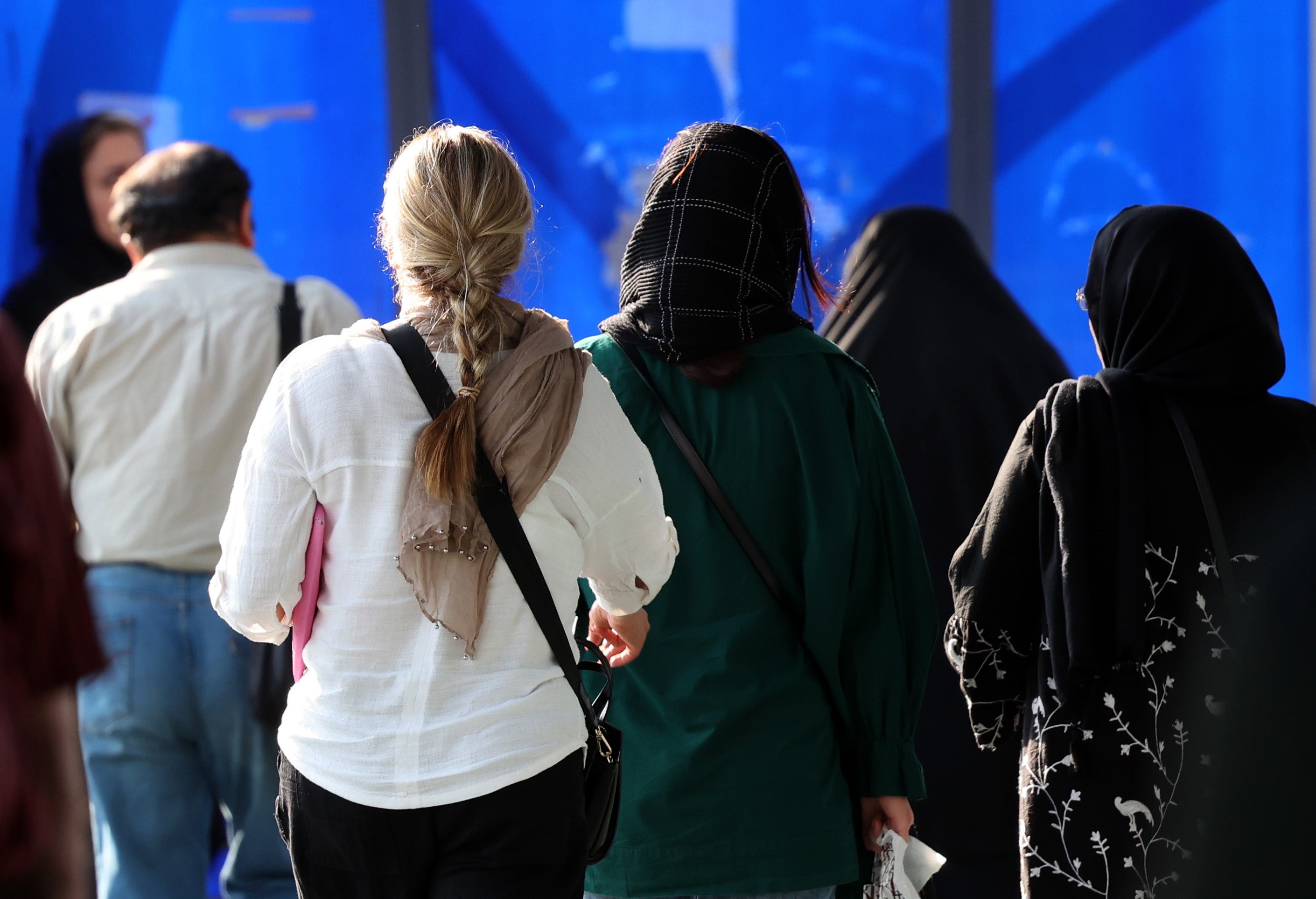Iran’s morality police will no longer ‘bother’ women over hijab, new president promises
A potential shift in Iran's strict enforcement of the Islamic dress code comes amid the looming Hijab and Chastity Bill which threatens harsher penalties
Iran’s morality police will no longer “bother” women over the wearing of the mandatory hijab headscarf, Masoud Pezeshkian, the country’s reformist new president, announced.
Mr Pezeshkian’s comments came during his first press conference since taking office in July, replacing ultraconservative Ebrahim Raisi who was killed in a helicopter crash in May in a mountainous region near the Azerbaijan border.
"The morality police were not supposed to confront [women]. I will follow up so they don’t bother [them]," the president said in response to a woman reporter’s query about the ongoing issue.
The development coincides with the second death anniversary of Mahsa Amini in police custody, which sparked nationwide protests.
Amini, 22, died on 16 September 2022 in a hospital after her arrest by the country’s morality police over allegedly not wearing her hijab to the liking of the authorities. The protests that followed Amini’s death started first with the chant “Women, Life, Freedom”. However, the protesters’ cries soon grew into open calls of revolt against Supreme Leader Ayatollah Khamenei.
A months-long security crackdown that followed killed more than 500 people and saw over 22,000 detained.
Iranian cities are seeing a rise in women walking freely without the mandatory headscarf, particularly after sunset, reported the Associated Press.
Videos on social media show women and girls walking with their hair uncovered, even as the UN warned of "expanded repressive measures" by Iran’s government. Women in Iran "still live in a system that relegates them to second-class citizens", according to the UN.

Ayatollah Khamenei’s stance reportedly remained a significant obstacle to change. The 85-year-old leader in the past stated that "unveiling is both religiously forbidden and politically forbidden".
For observant Muslim women, the head covering is a sign of piety before God and modesty in front of men outside their families. In Iran, the hijab, and the all-encompassing black chador worn by some, has long been a political symbol as well.
“Meaningful institutional changes and accountability for gross human rights violations and crimes under international law, and crimes against humanity, remains elusive for victims and survivors, especially for women and children,” warned a UN fact-finding mission on Iran on Friday.

"State authorities have expanded repressive measures and policies to further deprive women and girls of their fundamental rights,” said the report.
“Security forces have further escalated pre-existing patterns of physical violence, including beating, kicking, and slapping women and girls who are perceived as failing to comply with the mandatory hijab laws and regulations,” recorded the report after reviewing scores of videos.
Despite Mr Pezeshkian’s potentially reformist stance, concerns remain as the Hijab and Chastity Bill, which threatens harsher penalties for non-compliance, including financial fines, longer prison sentences, and restrictions on work and travel, is in the final stages of approval before Iran’s Guardian Council.
Join our commenting forum
Join thought-provoking conversations, follow other Independent readers and see their replies
Comments
Bookmark popover
Removed from bookmarks